Amarachi Nwosu’s ‘The Ones Who Keep Walking’ tells the story of Art, Music and Culture in Africa right now.
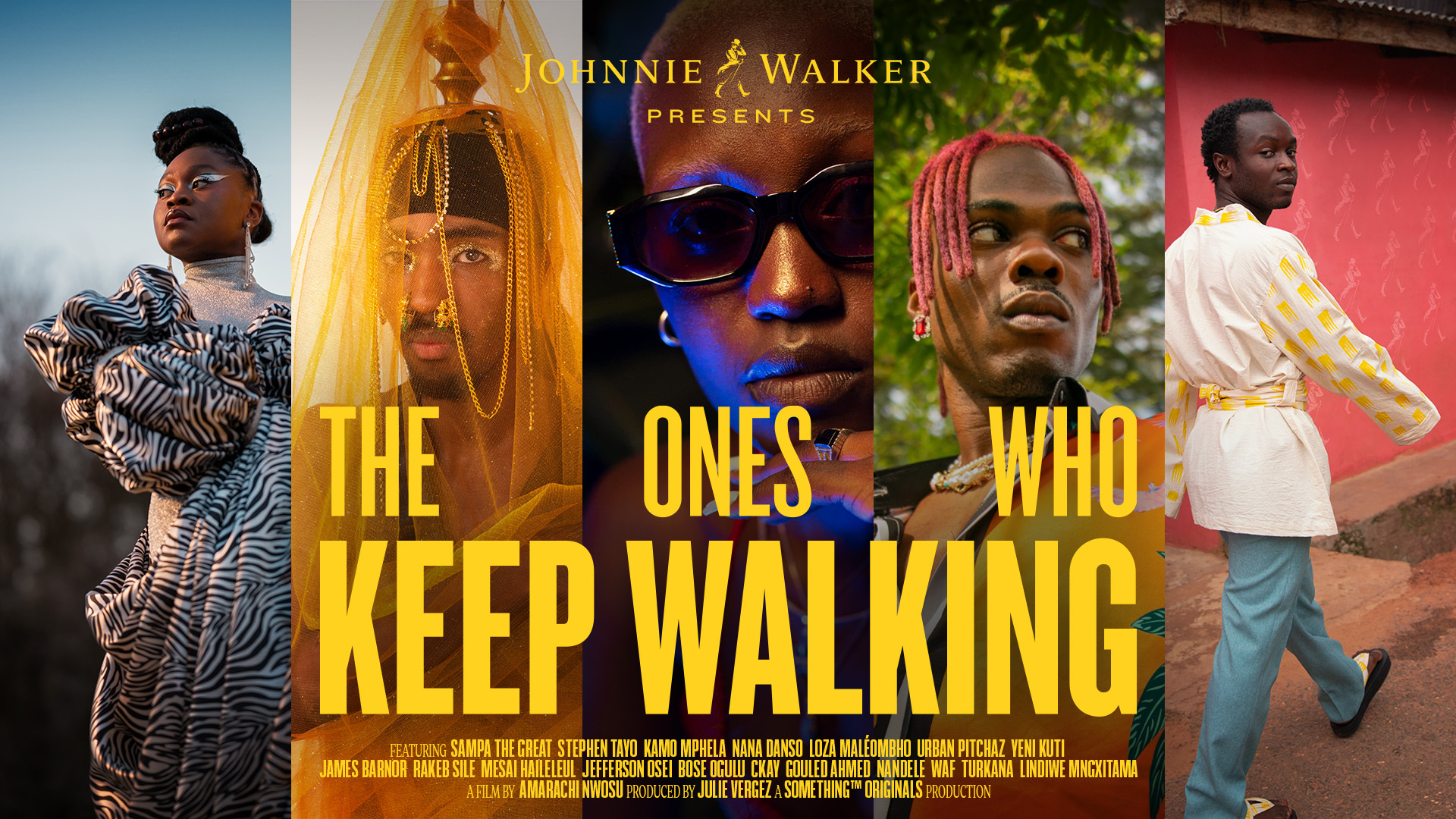
GUAP speaks to photographer and filmmaker Amarachi Nwosu on her debut feature film; The Ones Who Keep Walking.
Amarachi Nwosu is a photographer, filmmaker and director who over the years has lived and travelled all over the world to tell the stories of Black people across the diaspora. The young visionary who earned herself a spot on Forbes Africa’s 2021 30 Under 30 is also the founder of her own company Melanin Unscripted and the Director of her debut feature film titled The Ones Who Keep Walking.
‘The Ones Who Keep Walking’ is a film is ‘about bold steps, born boundary-pushers refusing to stand still, shaping Africa on new terms’. In the 50-minute long feature film, Amarachi explores the identities of the African creative. Across ten countries on the continent, the film tells the story of African creatives in different industries; from music, photography, sport, fashion, art and dance. Featured in the film are amazing talents like Bose Ogulu, James Barnor, Lindiwe Mngxitama, Stephen Tayo, Loza Maleombho and Gouled Ahmed.
Nwosu beautifully celebrates the past, present and future of the African creatives. The film is stunningly told through the lens of a Black creative who is a huge part of the creative renaissance herself. We had the opportunity to speak to Amarachi in more detail about the project, her intentions in filmmaking and the importance of African storytelling.
Who were your inspirations for photography and film growing up?
Honestly, I wouldn’t say there was an individual person I looked up to when it came to photography growing up. I was always very curious about visuals and storytelling, and I was obsessed with Tumblr and the kinds of images I saw of young people looking cool and carefree. There was little representation of that then as a black person and especially as a black woman, and this inspired me to fill that gap. As I got older, I became inspired by people like Spike Lee that allowed me to reimagine film in a way that was more personal to my experience and now as a young adult, it is people like Issa Rae and Ava Duvernay that have helped me expand the lens in which I can see myself occupying space in Film and TV.
When did you begin your journey into visual storytelling?
It started when I was in elementary school. My grandfather was the first person to show me how to use a camera and the value of documentation. He was one of the most brilliant people I ever knew and was an architect, so he always had this child-like curiosity about life that really inspired me. As a child, photography and capturing my trips was a way to expose my friends to my experiences when I travelled to places with my family, especially in Nigeria. Using my lens and printing out the images allowed me to educate my friends and even spark their own interest in learning more about other cultures and question the stereotypes they had been exposed to.
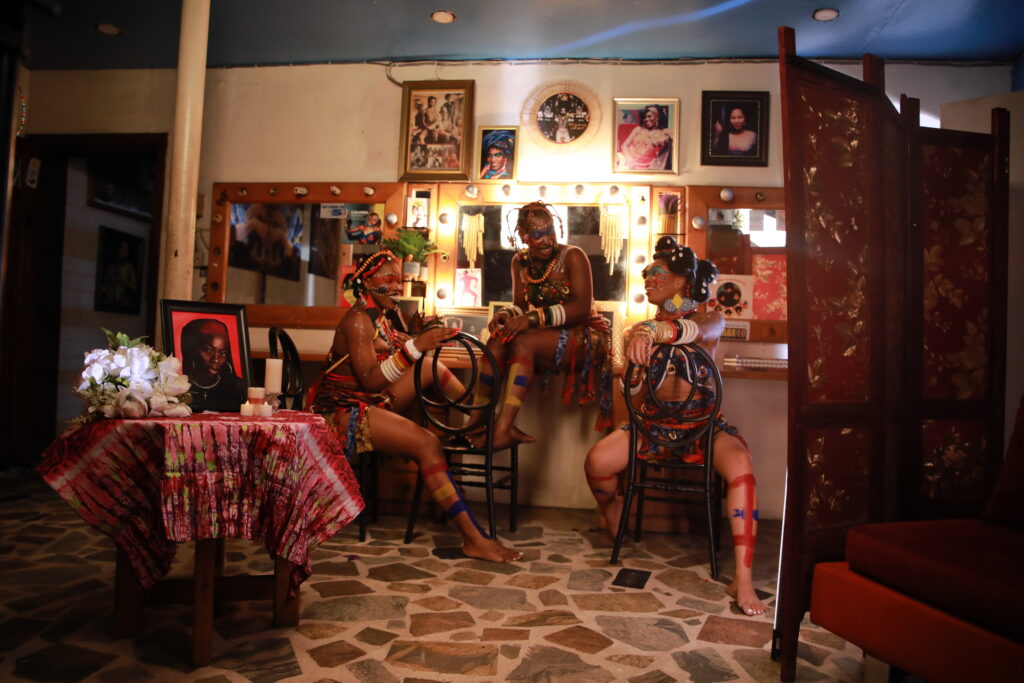
At what point did you decide that “The Ones Who Keep Walking” was a visual story that you wanted and needed to tell me?
The project came about through a brief that shared Johnnie Walker’s vision to connect all their various markets through stories on African Creatives. It was when I was presented this opportunity to develop the idea as a Director and get my team at Melanin Unscripted involved that it felt like there was finally a chance to put all the skills I have been developing as a visual artist and connector together to tell this story and push boundaries for African stories in film. For too long, Africa – its youth and its creative industries have had little reference point and context. I believe the film is the most useful tool to do that as it bridges different forms of creativity together with The Ones Who; the idea was to tell powerful stories on African creatives who are pushing boundaries but to also expose a collective narrative on past, present and future and how they are using this to build their creative practices. I knew this needed to be told because if we don’t tell our own stories, we leave room for someone else to misrepresent us. I took on the challenge to do that, and it birthed The Ones Who.
What was your decision making process when deciding what artists to have involved in the documentary?
When we started casting for the film, we knew how important it was to tell this story authentically and doing that required us to show the depth of the African experience, both good and bad. This allowed us to cast subjects knowing that we had to provide space for a wide range of conversations. It was an intentional effort to include people from different experiences, regions, creative disciplines, identities and orientations. That’s why on the one hand, have a creative like DJ TURKANA in Uganda speaking on the realities of growing up as a refugee and redefining the experience into an empowering one through her love for music and in the same conversation, we have someone like Burna boy’s Mom, Bose Ogulu, in Nigeria discussing the circumstances many African creatives experience when pursuing a non-traditional path and how that lacks Governments support. These are two voices speaking on a similar topic from two different lenses and generations, and it shows how connected we are despite age or cultural gaps.

The Ones Who Keep Walking 
The Ones Who Keep Walking
Many around the world are still in the dark regarding the rich history and culture of art in Africa. Is it this generation of artists’ responsibility to ensure that the world is aware?
I think everyone plays a role, old and young, in progressing Africa forward. If this happens cross-generationally, I think it would have a greater impact. However, I believe that it’s our generation that is using the internet to make this impact transcend globally. We are in a unique role to use technology to our advantage, and I think our generation should use this to create more spaces for ourselves and build technology that we have ownership over that can propel collective progress.
You’ve described yourself as a bit of a nomad. Did that lend a hand in your ability to authentically capture the stories of creative people and culture across the continent?
It definitely did. Creating this film was all about being able to adapt in real-time and capture authentic moments. There is an art in travelling, connecting with people, balancing your personal experience and working on projects of this scale. That is a huge reflection of what it’s like to be a nomad and a storyteller for me, so it all came together.
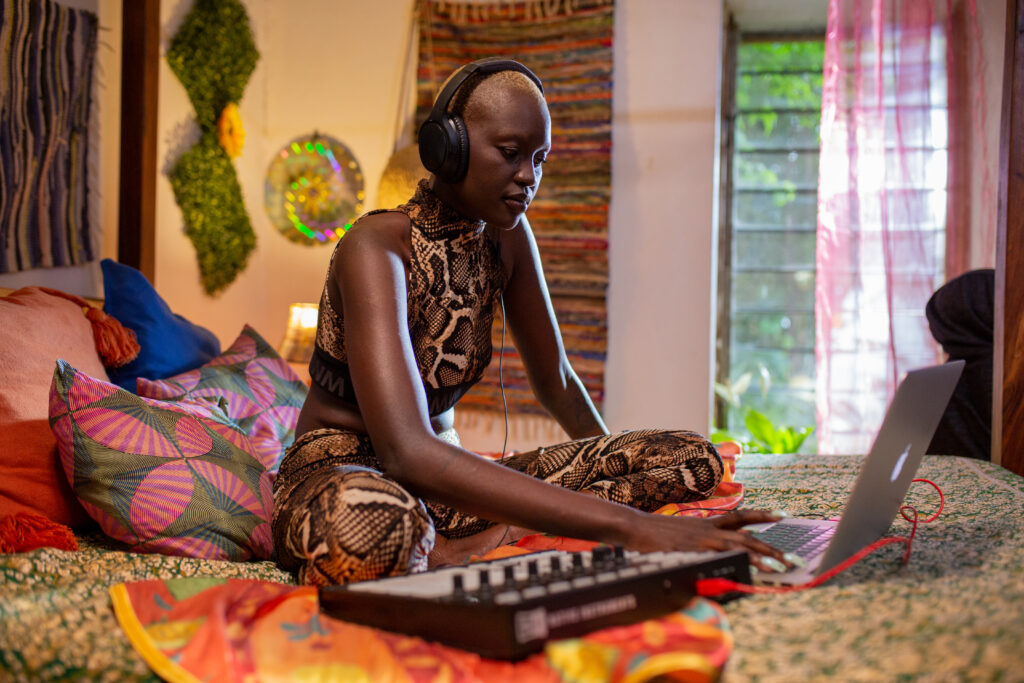
This documentary is a lot more complex than just a mixture of talking heads and b-roll of African cities. This documentary takes a more active role in its approach to storytelling, moving from realism and abstract moments. Example: The Fela Kuti’ Queens’ performance. Why did you decide to use music and dance as a way to push the documentary story?
Film is not linear to me, and I wanted this film to present a visual experience from an Afro-futuristic lens. With no reference point meant that we had an opportunity to really shape our own style and push boundaries. I have also felt documentaries that are the most engaging are the most powerful. Dance and music is such a big part of African culture, and the power in the film was its ability to mirror the vastness of African culture and creativity. With any film I create, I want there to be an element of surprise that draws you in and with Kuti Queen sections, it was the perfect way to develop the momentum and keep people engaged but connect directly with the narrative.
What projects inspired ‘The Ones Who Keep Walking’?
My company Melanin Unscripted actually has another series coming out in 2022 that is about African Creatives and the new wave class of innovators in different fields. I played a role both in front and behind the scenes, and It was this series that truly prepared me to direct The Ones Who Keep Walking. When creating this film, there was truly no reference point as it’s the first of its kind, but the people are what inspired me more than anything. The stories I have been able to witness in real life helped me see the value in tastefully documenting and presenting individuals’ stories to the world.

The Ones Who Keep Walking 
The Ones Who Keep Walking
In the last few years, there has been a cultural shift in the West in regards to how African art and music is consumed. Does this shift present opportunity, or should there be a concern in the stories of African creatives being appropriated or stolen?
With any culture going mainstream, there is always a rush to understand and appeal to the demographic who aligns with it. In this context, it’s the modern-day rush to Africa that is taking place. With any form of foreign interest, the intention always needs to be considered because it reflects in the execution. Africa has had a very complex history with foreign exchange that is often rooted in exploitation – that is why who and how things are done matter and should be carefully considered. With this new generation, we have a lot more information and tools to tell our own stories, choose our collaborators consciously and also be vocal when things are done with ill intentions. The power Africans have today is our voice and we have to use it with power – because even if people try to replicate the blueprint, they can’t steal the authenticity.
How do you think African creatives outside of the content should collaborate with the creatives within? How do we build bridges within our vast community to ensure progress and protection?
It starts with research and educating oneself. The more we understand each other – the greater the ability for exchange and collaboration. Intentional collaboration is rooted in authenticity. We have to come into a space and utilize what makes us each authentic and find ways to bridge that for greater impact.
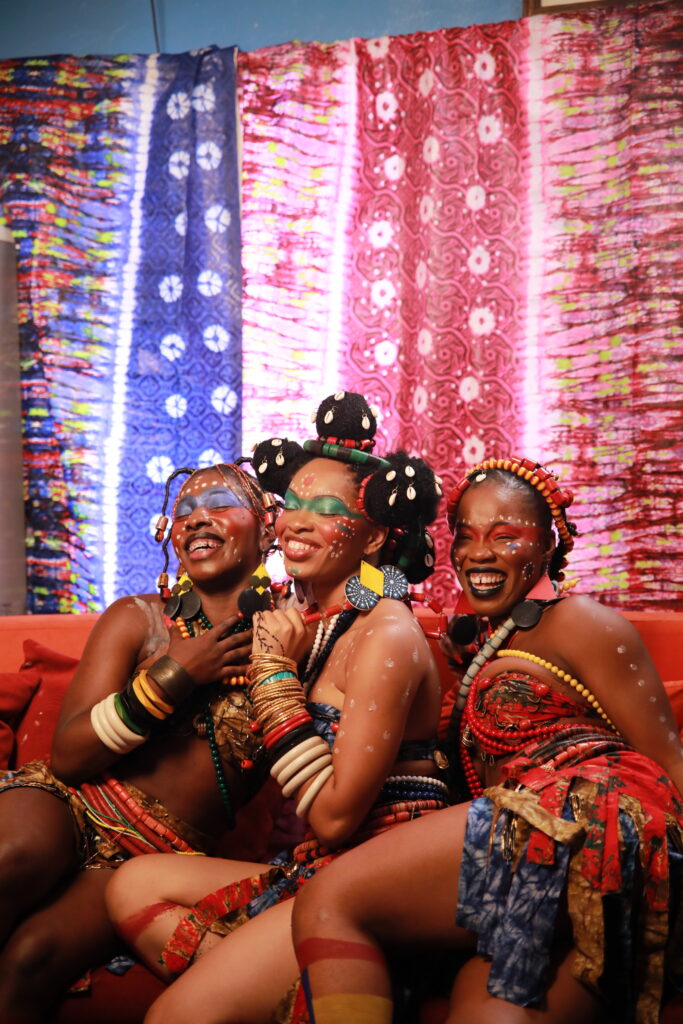
In your words, WHO are the ones that keep us walking?
They are people who are resilient despite the circumstances they have been through. They are the people who don’t see limitations or validations as a deterring point. They are the ones who are unapologetically true and show others how to walk in that truth.
Check out the GUAP Arts & Culture section, to discover new art, film, and creative individuals.




![ZINO VINCI’S ‘FILTHY & DISGUSTING’EP BRINGS YOU TO THE CORE OF THE ARTIST [@ZinoVinci]](https://guap.co/wp-content/uploads/2023/10/Zino-4.jpg)

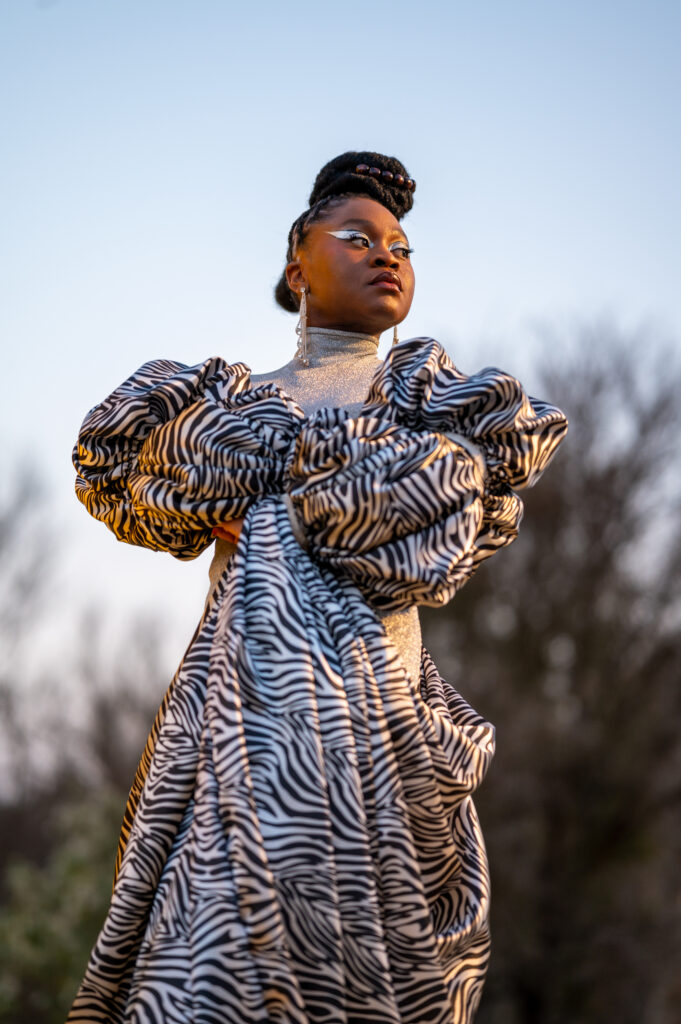
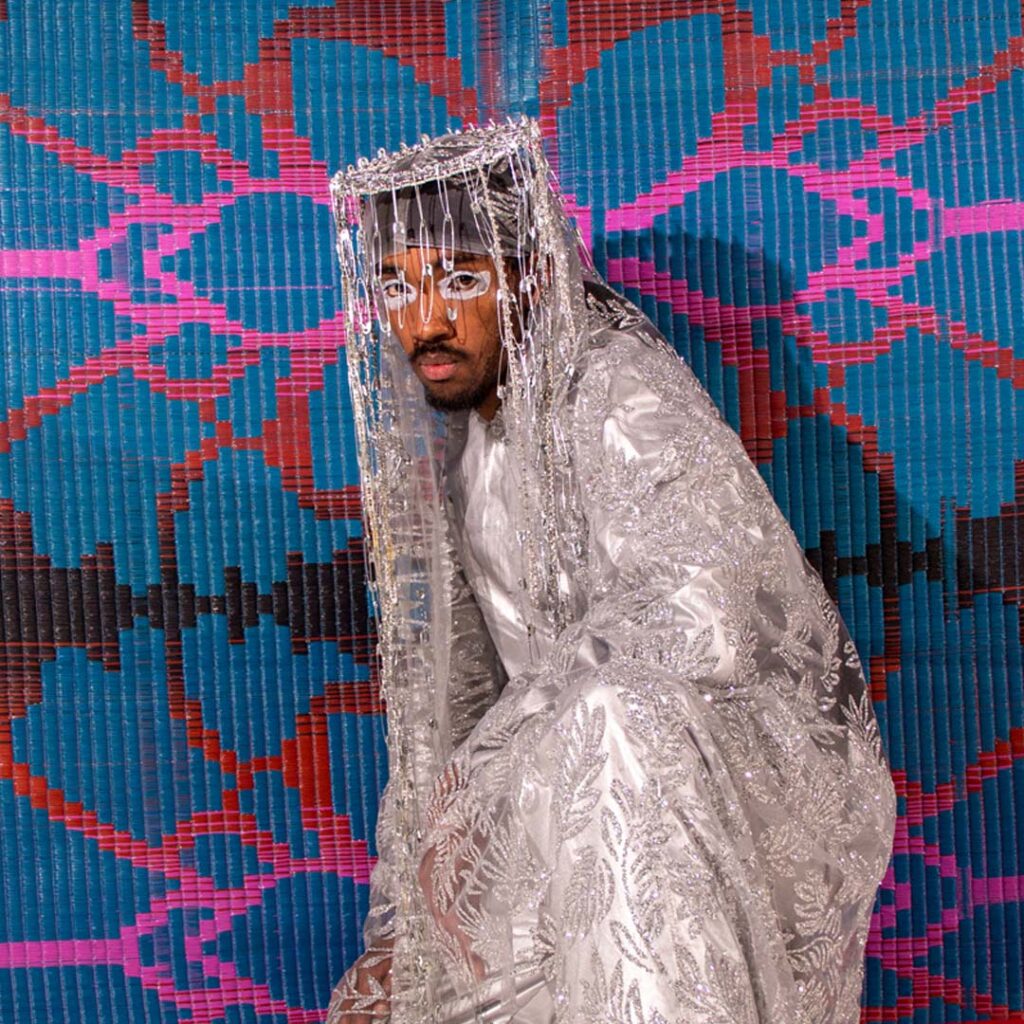
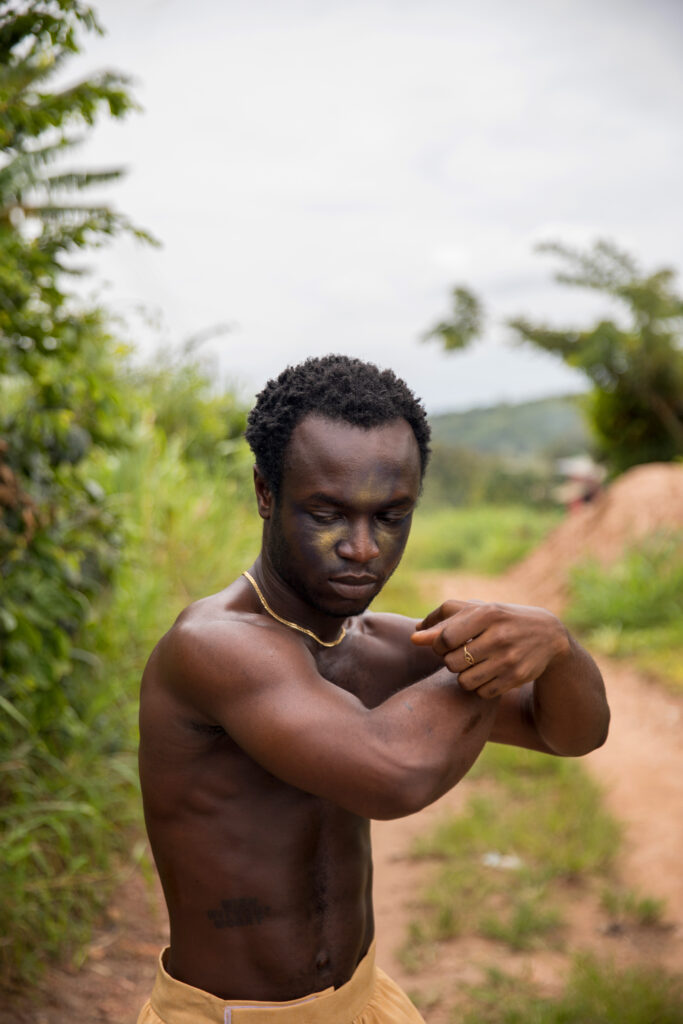
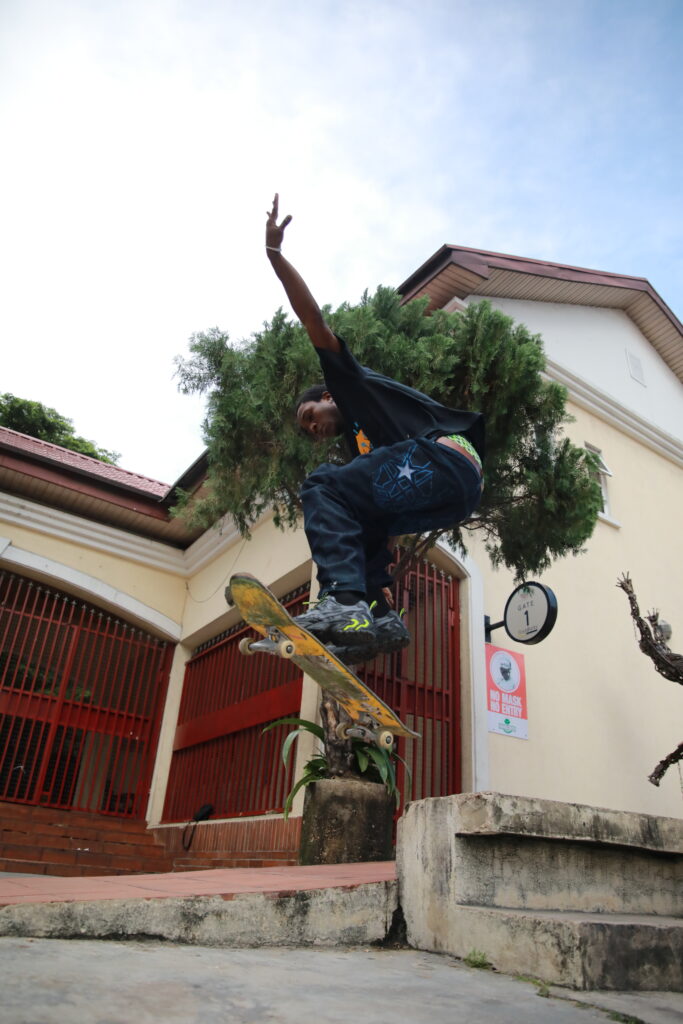
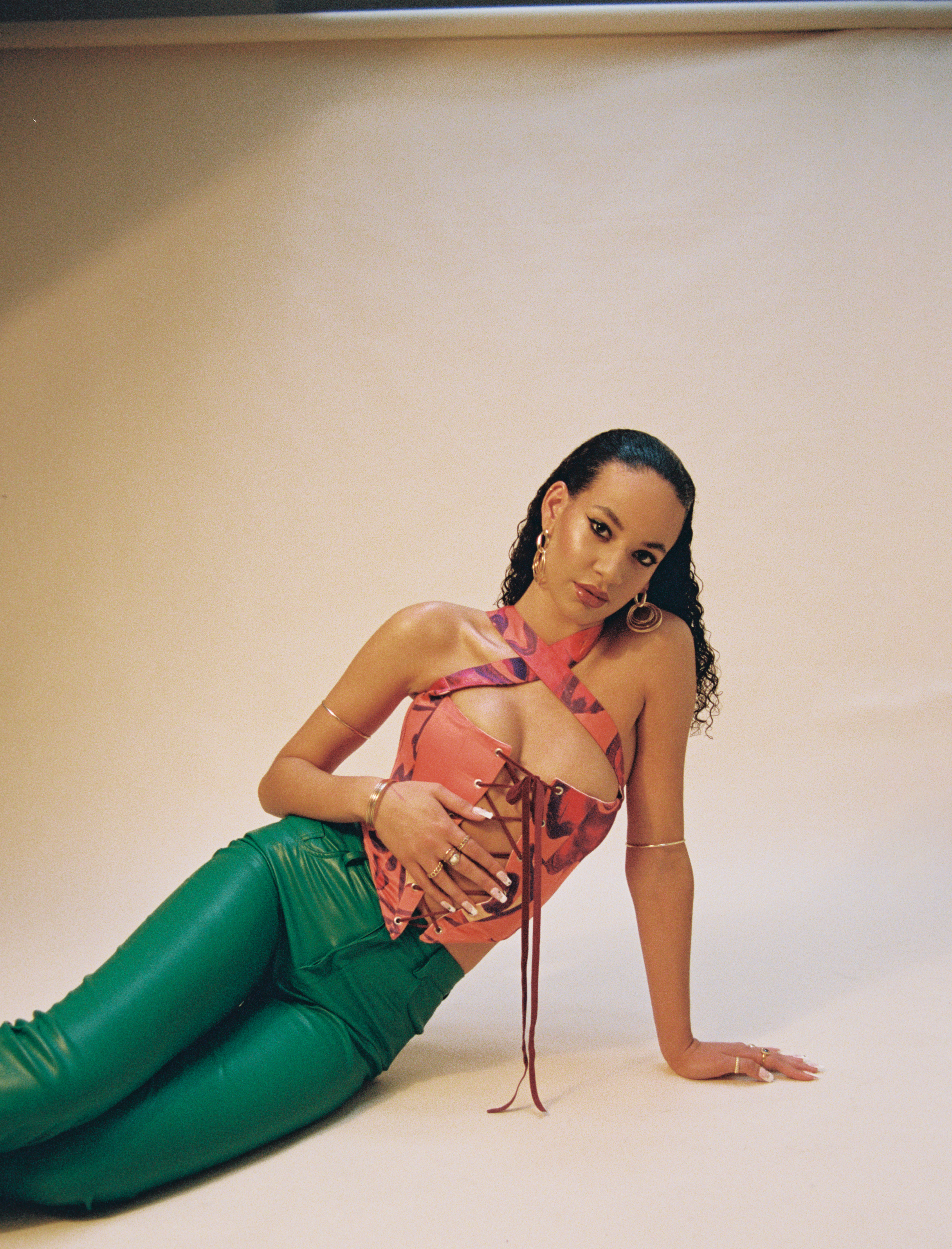
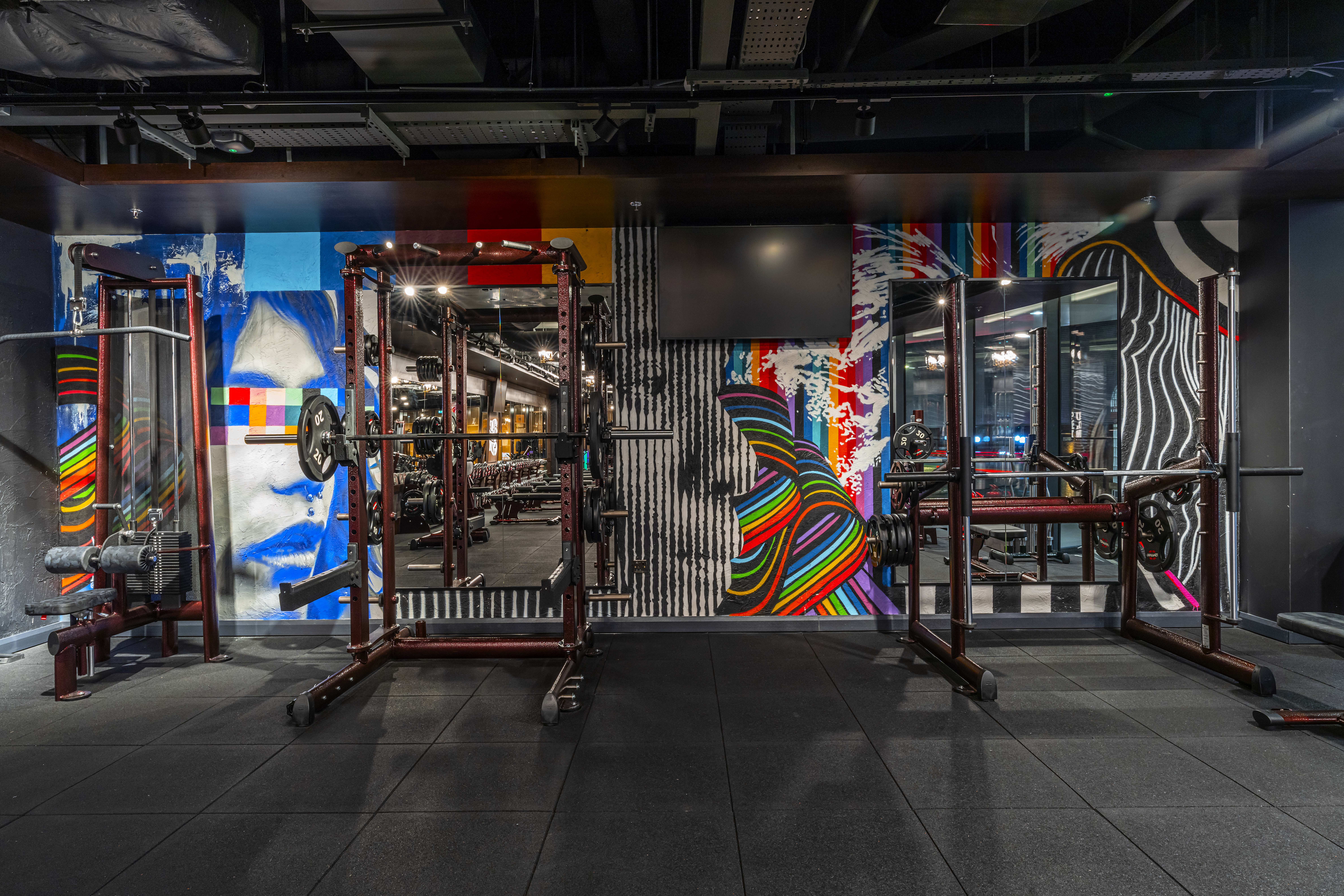


![Remel London’s [@Remel_London] “Mainstream” is a must attend for upcoming presenters!](https://guap.co/wp-content/uploads/2017/02/REMEL-LONDON-FLYER-FINAL-YELLOW-COMPLETE-1.png)